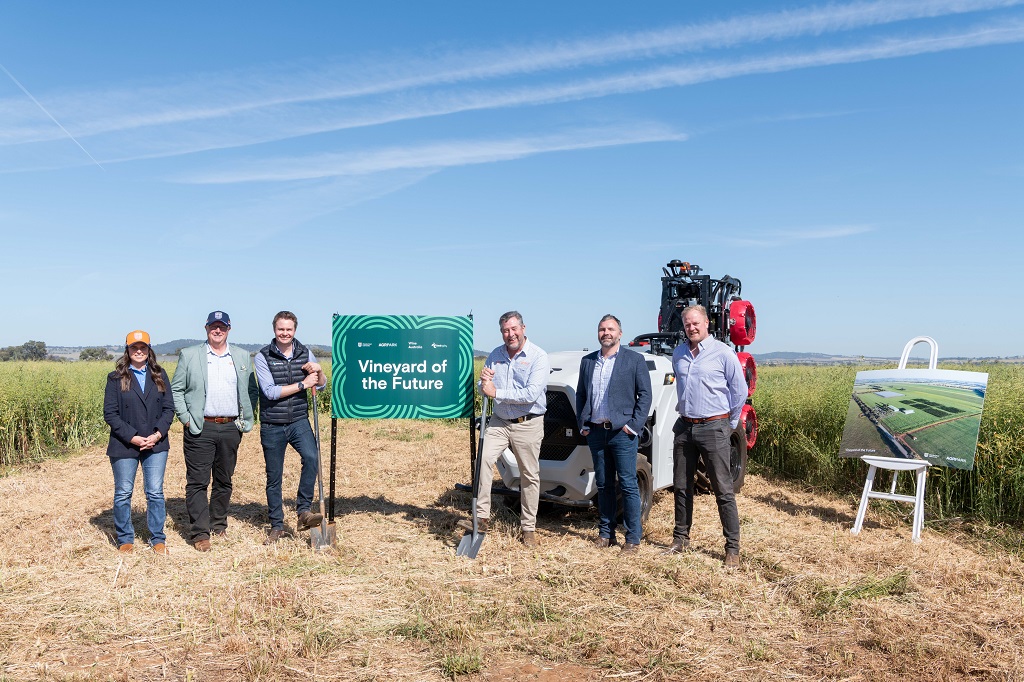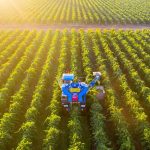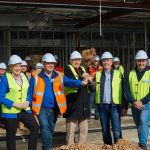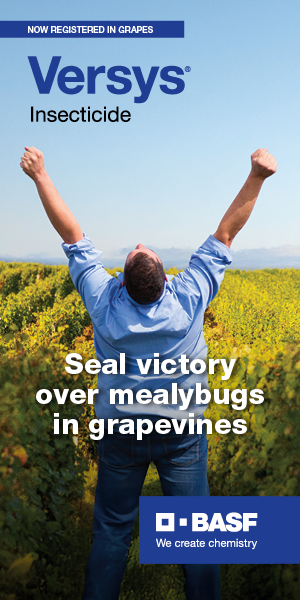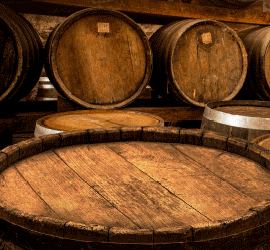L-R: Head of Government Relations and Regional Engagement Samantha Beresford, executive director of AgriPark Nick Pagett, chief executive officer of Food Agility CRC Dr Mick Schaefer, associate director of Industry and Academic Partnership – Wine Industry, Charles Sturt University Mark Bourne, Global Digital Farm director Hugh Palmer and Program Manager – Regional Innovation, Wine Australia Dave Gerner. Image courtesy Charles Sturt University
The ‘Vineyard of the Future’ program has now officially launched, aimed at addressing the productivity, profitability and sustainability challenges being faced by Australia’s $45 billion wine industry.
The launch took place at the Digital Agrifood Summit in late October and is the result of collaborations between Charles Sturt University, Wine Australia and Food Agility CRC.
The Vineyard of the Future, to be established as part of Charles Sturt’s 2,000ha Global Digital Farm in Wagga Wagga, is a new high-tech vineyard focussed on ensuring the Australian wine industry remains globally competitive into the future.
The projects proposed for the site include:
- A soil accounting tool for vineyards so grapegrowers can measure the benefits of sustainable vineyard practices and carbon capture gains
- A data hub platform pilot to allow integration of several wine industry data sources into one interface, with a support tool for investment, operation and research outcomes to improve efficiency and productivity
- An Agtech demonstration, test and validate site to provide producers with the ability to see emerging and new technology in a real-world scenario
Mark Bourne associate director of Agrisciences Research and Business Park (AgriPark) and of academic and education partnerships for the wine industry, said the Vineyard of the Future programme will be a pioneering research and education hub.
“The state-of-the-art Vineyard of the Future will incorporate cutting-edge agricultural technologies to maximise efficiency, reduce environmental impact, and elevate the quality of Australian wines to unprecedented heights,” he said.
Advanced precision viticulture will be at the heart of the Vineyard of the Future and provide a roadmap for vineyards to reduce inputs like water, fertilisers and pesticides while boosting yields and grape quality.
Data-driven insights from this program will allow growers to make smarter decisions, optimising resources and maximising their returns.
“The projects will not just develop the new technologies but also test and validate their commercial viability at scale to establish best practices and create a blueprint for the wine industry’s sustainable future,” Bourne said.
“The Vineyard of the Future project presents a fantastic opportunity for innovation to be tested, trialled, and eventually commercialised and shared with the broader wine community,” said Dave Gerner, program manager of Regional Innovation at Wine Australia.
“The opportunity for researchers to be involved in the project from the ground up in a sandpit environment is significant. Traditionally, a lot of research is carried out in established, commercial vineyards where there is limited flexibility for researchers, so innovating on a green-field site is very exciting,” said Gerner.
The Australian wine industry generates more than $45 billion in economic activity annually and plays a crucial role in the employment of more than 150,000 people in many Australian regional communities across the production, retail, wholesale, export and tourism sectors.
Work on the first three Vineyard of the Future projects will commence in December 2024.
Are you a Daily Wine News subscriber? If not, click here to join our mailing list. It’s free!
